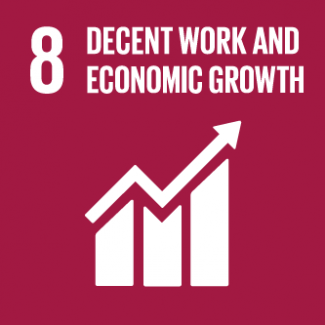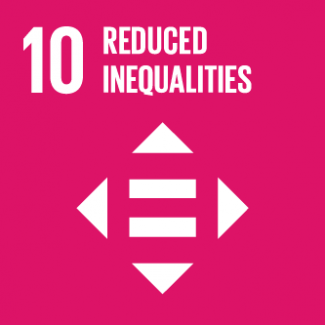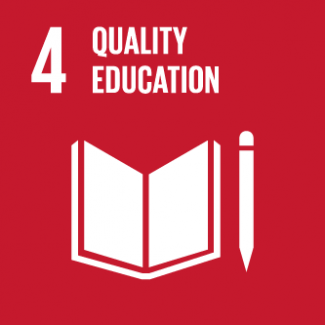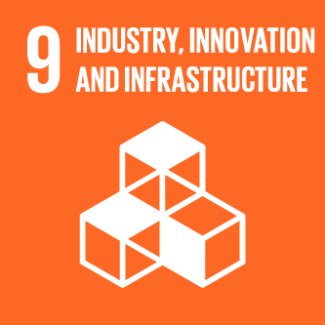Online Payment Services





Business Model Description
Online/E-commerce payment schemes for SMEs and individual sellers. An e-payment system is a way to make transactions online without the use of physical checks or cash. (5) Online payment structures integrated within e-commerce value chains as well as digital money/wallet solutions that transform mobile phones into pos devices.
Expected Impact
Investments in online payment services will increase the revenues of SMEs by facilitating their access to the e-commerce markets.
How is this information gathered?
Investment opportunities with potential to contribute to sustainable development are based on country-level SDG Investor Maps.
Disclaimer
UNDP, the Private Finance for the SDGs, and their affiliates (collectively “UNDP”) do not seek or solicit investment for programmes, projects, or opportunities described on this site (collectively “Programmes”) or any other Programmes, and nothing on this page should constitute a solicitation for investment. The actors listed on this site are not partners of UNDP, and their inclusion should not be construed as an endorsement or recommendation by UNDP for any relationship or investment.
The descriptions on this page are provided for informational purposes only. Only companies and enterprises that appear under the case study tab have been validated and vetted through UNDP programmes such as the Growth Stage Impact Ventures (GSIV), Business Call to Action (BCtA), or through other UN agencies. Even then, under no circumstances should their appearance on this website be construed as an endorsement for any relationship or investment. UNDP assumes no liability for investment losses directly or indirectly resulting from recommendations made, implied, or inferred by its research. Likewise, UNDP assumes no claim to investment gains directly or indirectly resulting from trading profits, investment management, or advisory fees obtained by following investment recommendations made, implied, or inferred by its research.
Investment involves risk, and all investments should be made with the supervision of a professional investment manager or advisor. The materials on the website are not an offer to sell or a solicitation of an offer to buy any investment, security, or commodity, nor shall any security be offered or sold to any person, in any jurisdiction in which such offer would be unlawful under the securities laws of such jurisdiction.
Country & Regions
- Turkey: Marmara Region
Sector Classification
Financials
Development need
Turkey has a lower penetration of digital services compared to the European average. Among similarly developed economies, Turkey has a lower density of bank accounts, especially among women. The country needs to overcome the challenge of making cashless transactions more attractive and also reach out to those currently underserved. (1
Policy priority
Turkey has an objective to develop a strong institutionsl financial sector to satisfy the needs of real sector and offer alternative financial investors, covering a wide spectrum of investor profiles, while positioning Istanbul as a global financial hub. (2)
Gender inequalities and marginalization issues
Despite major improvements in financial inclusion in Turkey, the gender gap in account ownership is still wide as 30 percentage points. There is also a considerable gap between richer and poorer adults as wide as 20 percentage points, which is comparatively higher than countries with high account ownership. (3)
Investment opportunities
Due to the digital transformation of the economy, digital and remote financial services and products present a great investment opportunity. This is amplified by the effects of COVID-19. The financial sector in Turkey is rapidly growing, with a CAGR of 18% in 2018. (5)
Key bottlenecks
While investing in digital banking tools and services, disparities in household internet access throughout the country should be taken into account.
Development need
There is a need to enhance financial capacity for Turkey to achieve SDGs with a focus on diversification of financial instruments with the contribution of private sector. (4)
Policy priority
Turkey has the ambition to become a cashless society by 2023. (1) Turkey also has a policy priority to form a safe financial technology (fintech) environment to provide equal opportunities for companies based on international good practices. There is also an objective to strengthen alternative financing mechanisms such as impact investments, venture capital, and mass funding. (2)
Gender inequalities and marginalization issues
Turkey has a lower density of bank accounts, especially among women. The country needs to overcome the challenge of making cashless transactions more attractive and also reach out to those currently underserved. (1)
Key bottlenecks
While investing in digital banking tools and services, disparities in household internet access throughout the country should be taken into account.
Pipeline Opportunity
Online Payment Services
Online/E-commerce payment schemes for SMEs and individual sellers. An e-payment system is a way to make transactions online without the use of physical checks or cash. (5) Online payment structures integrated within e-commerce value chains as well as digital money/wallet solutions that transform mobile phones into pos devices.
Business Case
Market Size and Environment
> USD 1 billion
10% - 15%
Total e-commerce transactions in Turkey in 2019 was 190.1 billion TRY (US$27 billion). (7)
Market sizing information for e-commerce transaction is retrieved from the Interbank Card Center.
The expected growth rate for the e-commerce market is retrieved from JP Morgan's Global Payment Trends Report.
Indicative Return
> 25%
Investors already active in this area estimate annual returns for innovative solutions in e-payment and digital money to be between 25-30% with a minimum range of 10-15% annual returns. Investors can expect 3-5 times return on their investments.
Successful models can generate up to 50-60% IRR as has been observed by recent exits/sales in the industry. (9)
Investment Timeframe
Short Term (0–5 years)
The average exit timespan for these models in Turkey is around 5 years according to interviews with companies already active in this sector.
Ticket Size
USD 1 million - USD 10 million
Market Risks & Scale Obstacles
Market - High Level of Competition
Impact Case
Sustainable Development Need
Turkey has a lower penetration of digital services compared to the European average. (10)
In 2019, 9.15% of SMEs in Turkey sold products online, against an EU average of 16.57 %. It is essential for SMEs to adopt new e-commerce strategies. (11)
Gender & Marginalisation
Among similarly developed economies, Turkey has a lower density of bank accounts, especially among women. The country needs to overcome the challenge of making cashless transactions more attractive and also reach out to those currently underserved. (10)
In Turkey, there are 15,159 businesses registered where at least one partner is Syrian. (12)
UNHCR estimate for the current number of refugee-owned businesses in Turkey is 8,000. (13)
In a joint study conducted by EBRD and TEPAV in 2018, the major constraint facing Syrian companies in Turkey is access to finance (41.5% of respondents). (14)
Expected Development Outcome
This IOA can increase revenues for SMEs by facilitating their access to the e-commerce market through online payment schemes.
This IOA can increase e-commerce volume in Turkey and improve competitiveness. If the increasing trend in export enabled by İyzico is sustained for another three years, US$1 billion of e-commerce volume will be generated only via İyzico. (15)
Gender & Marginalisation
Advances in this IOA can improve financial inclusion aspects for women who remain relateively unbanked in Turkey, financially empowering them.
Investments in this IOA can help refugee businesses access the formal economy by using online payment schemes.
Primary SDGs addressed

1.1.1 Proportion of the population living below the international poverty line by sex, age, employment status and geographic location (urban/rural)
1.2.1 Proportion of population living below the national poverty line, by sex and age
1.2.2 Proportion of men, women and children of all ages living in poverty in all its dimensions according to national definitions
1.1.1: 0.2% (16) 1.2.1: 14.4% 1.2.2:N.A.
1.1.1: 0% (16) 1.2.1: 0% (16) 1.2.2:0% (16)

8.10.2 Proportion of adults (15 years and older) with an account at a bank or other financial institution or with a mobile-money-service provider
8.10.2: 68.59% (16)
8.10.2: 100% (16)

10.1.1 Growth rates of household expenditure or income per capita among the bottom 40 per cent of the population and the total population
10.1.1: 2% (17) 10.5.1: 3.69% Non-performing loans to total gross loans (17) 1.78% return on assets (17) 10.79% regulatory capital to assets (17) 5.93% NPL net of provisions to capital (17) 64% liquid assets to ST liabilities (17) 1.52% net open position in foreign exchange to capital (17)
N.A.
Secondary SDGs addressed


Directly impacted stakeholders
People
Gender inequality and/or marginalization
Indirectly impacted stakeholders
People
Outcome Risks
Online payment schemes may increase mass consumption by making the shopping experience easy.
Impact Risks
External risk given the interwoven structure of the overall financial system with national and international factors
Stakeholder participation risk given the high lobbying power of the banking sector
Impact Classification
What
Important, positive outcome: increased SME and entrepreneur competitiveness and economic growth.
Who
Online payment schemes benefit stakeholders working in SMEs, individual entrepreneurs and other supply chain actors operating in e-commerce sectors.
Risk
Cybersecurity, data and technology related risks are prevalent for this business model.
Impact Thesis
Investments in online payment services will increase the revenues of SMEs by facilitating their access to the e-commerce markets.
Enabling Environment
Policy Environment
(11th Development Plan): 520. Studies to ensure confidence in e-Commerce will be completed, the market shares will be increased, especially in regions that Turkey has a competitive advantage thanks to geographic and cultural proximity. (18)
(11th Development Plan): 520.2. The software operations of the E-Commerce Information System will be completed and the system will be put into practice in order to make the e-commerce enterprises accessible and to follow the e-commerce data in a healthy way.(18)
(11th Development Plan): 520.3. In regions where Turkey has competitive advantage, e-commerce market share will be increased through bilateral and multilateral agreements.(18)
(Policy document): 11th Development Plan, 249. In order to develop alternative money and payment systems that will be accepted in the international trade system, country collaborations will be established and for this purpose studies will be continued. (18)
(Policy document): 11th Development Plan, Turkey has an ambition to become a cashless society by 2023. (18)
Financial Environment
Financial incentives: Fintech startups are eligible for support by TÜBİTAK under the "1512 Techno-Entrepreneurship Support Program (BiGG)". This is a call-based program that provides up to 200 thousand TRY in seed capital and up to 600 thousand TRY grant for R&D support. (23)
Other incentives: The Ministry of Industry and Technology and The Development and Investment Bank of Turkey established "The Technology and Innovation Fund" under the Turkey Development Fund to finance innovative tech. based companies/projects with a budget of 350 million TRY.
Regulatory Environment
In Turkey, banks, payment firms or electronic money institutions can offer payment systems services, which are regulated by the Central Bank of the Republic of Turkey under the Law No. 6493 Law on Payment and Securities Settlement Systems, Payment Services and Electronic Money Institutions.(19)
Law No 7192 on "Amendment of the Law on Payment and Securities Settlement Systems, Payment Services and Electronic Money Institutions and Other Laws" created a leal base for Fintech, payment services, and e-currencies. (20)
(Regulation): The Revenue Administration in Turkey published the updated "Safe Mobile Payment and Electronic Document Management System" in May 2020. This was first published on the official gazette in June 2019. (21)
(Regulation): The Turkish regulations are aligned with the EU Payment Systems Directive.
(Regulation): There is a 2 million TRY (1 million TRY paid-in capital and 1 million TRY collateral at CB) capital required to obtain licenses. (22)
Marketplace Participants
Private Sector
İyzico, BKM Ekspress, İninal, Paynet, Payu Banks, Papara, Param, Birleşik Ödeme, Ödeal, Paraşüt, Boğaziçi Ventures, MV Holding, Revo Capital, 212, Banks
Government
Central Bank of Turkey, BRSA, Ministry of Treasury and Finance, BKM (Bankalararası Kart Merkezi-Interbank Card Center)
Multilaterals
IFC/World Bank, EBRD.
Non-Profit
Union of Payment and Electronic Money Institutions of Turkey, Turkish Payment and Electronic Money Institution-ÖDED (Ödeme ve Elektronik Para Derneği), Financial Innovation and Technology Association (Finansal İnovasyon ve Teknoloji Derneği)
Target Locations
Turkey: Marmara Region
References
- (1) BKM, 2017. Cashless Turkey by 2023. https://bkm.com.tr/wp-content/uploads/2017/05/cashless-2023.pdf
- (2) Presidency of Strategy and Budget, 11th Development Plan. http://www.sbb.gov.tr/wp-content/uploads/2020/03/On_BirinciPLan_ingilizce_SonBaski.pdf
- (3) World Bank, 2018. The Global Findex Database 2017. https://globalfindex.worldbank.org/
- (4) Presidency of Strategy and Budget, Turkey's SDGs 2nd VNR 2019. https://sustainabledevelopment.un.org/content/documents/23862Turkey_VNR_110719.pdf
- (5) Investment Office of Turkey, 2018. https://www.invest.gov.tr/en/sectors/pages/financial-services.aspx
- (5) What is an E-Payment System? https://securionpay.com/blog/e-payment-system/
- (6) Iyzico, 2020. https://www.iyzico.com/en
- (7) The Interbank Card Center (BKM), 2020. İNTERNETTEN YAPILAN KARTLI ÖDEME İŞLEMLERİ. https://bkm.com.tr/internetten-yapilan-kartli-odeme-islemleri/
- (8) J.P. Morgan, 2019. 2019 Global Payments Trends Report - Turkey Country Insights. https://www.jpmorgan.com/merchant-services/insights/reports/turkey
- (9) EF Vostok Emerging Finance. İyzico Exit. https://www.vostokemergingfinance.com/wp-content/uploads/2019/08/iyzico-Exit.pdf
- (10) BKM, 2017. Cashless Turkey by 2023. https://bkm.com.tr/wp-content/uploads/2017/05/cashless-2023.pdf
- (11) EC, 2019. 2019 SBA Fact Sheet Turkey. https://ec.europa.eu/neighbourhood-enlargement/sites/near/files/sba-fs-2019_turkey.pdf
- (12) Statement by the Minister of Trade Turkey, 2019. https://www.cnnturk.com/ekonomi/bakan-pekcan-15-bin-159-suriyeli-sirket-var
- (13) UNHCR Turkey, 2019. https://www.unhcr.org/tr/en/livelihoods
- (14) TEPAV and EBRD, 2018. Syrian Entrepreneurship and Refugee Start-ups in Turkey.
- (15) İyzico and PAL Consultancy, 2019. Impact of Financial Technologies on the Turkish Economy. https://media.iyzico.com/b/2019/04/PAL-eng.pdf
- (16) Bertelsmann Stiftung & SDSN, 2020. Sustainable Development Report Dashboards 2020. Turkey. https://dashboards.sdgindex.org/profiles/tur/indicators
- (17) World Bank, Databank. https://data.worldbank.org/indicator/SI.POV.NAHC?locations=TR
- (18) Turkey's 11th Development Plan. http://www.sbb.gov.tr/wp-content/uploads/2020/03/On_BirinciPLan_ingilizce_SonBaski.pdf
- (19) Official Gazette, 2013. LAW ON PAYMENT AND SECURITIES SETTLEMENT SYSTEMS, PAYMENT SERVICES AND ELECTRONIC MONEY INSTITUTIONS.
- (20) Çukur and Yılmaz Law Firm. https://cukuryilmaz.av.tr/major-amendments-regarding-the-code-numbered-7192-on-payment-services-e-currencies-and-open-banking/
- (21) KPMG, 2020. https://home.kpmg/tr/tr/home/hizmetlerimiz/denetim-ve-guvence/bilgi-sistemleri-risk-yonetimi/mevzuat-uyum-hizmetleri/guvenli-mobil-odeme-elektronik-belge-yonetim-sistemi.html
- (22) BRSA, 2020. FAQ. https://www.bddk.org.tr/Sss-Kategori/Odeme-Sistemleri-ve-Elektronik-Para-Kuruluslari/3
- (23) TÜBİTAK. 1512 - Entrepreneurship Multi-phase Programme. https://tubitak.gov.tr/en/funds/industry/national-support-programmes/content-1512-entrepreneurship-multi-phase-programme















